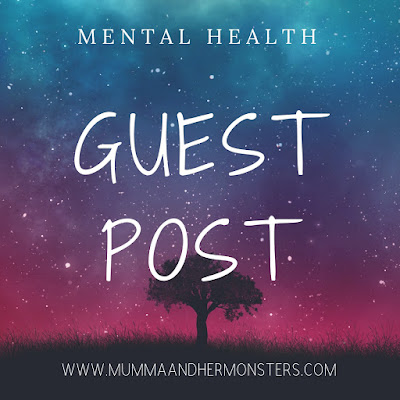Obsessive Compulsive Disorder : A Mental Health Guest Post
Obsessive Compulsive Disorder (OCD)
Before we start, I really need to make this abundantly clear. OCD is not a condition in which someone is ‘a little bit’ OCD. Nor is it a condition in which someone likes to be tidy and cannot stand to see mess. Just because you arrange your books in colour order on a shelf, it does not follow that you have OCD. You do not have OCD if you wake-up in the night and suddenly wonder if you have turned off the oven.
OCD is one of the most debilitating mental health conditions. It changes lives. It is like a parasite that impacts on families of sufferers in a most cruel way. It’s incredibly serious and life-altering. It’s time that more people were educated about what the condition is and what can be done to help people. We really need to understand it more and respect people who suffer from it.
A correct definition of OCD is when someone has obsessive thoughts and compulsive behaviours.
An obsession is an unwanted and unpleasant thought, image or urge that repeatedly enters your mind, causing feelings of anxiety, disgust or unease.
A compulsion is a repetitive behaviour or mental act that you feel you need to carry out to try to temporarily relieve the unpleasant feelings brought on by the obsessive thought.
Sufferers report that it can start with a very simple thought that someone needs to repeat a behaviour, or the consequences will be dire; such as the loss of a family member. Whilst many people may experience this at some point and be able to swiftly remove it from their train of thought, OCD sufferers are unable to do so, and this will ultimately result in more repetitive behaviour and increased fear of punishment. This may lead to complicated rituals that the sufferer must follow daily or they will be convinced that they will be punished in some horrific way. There are some sufferers who develop whole rituals because it is their way of coping with the condition and eventually the rituals become so complex that the sufferer is unable to go through their daily life, hold down a job or even go outside. It also impacts on families as families must cope with the obsessive behaviour and must make allowances for it.
Cleanliness can be a huge factor in OCD but not in a good way. Sufferers become concerned with germs and the fear of catching serious illnesses from being in contact with the germs. They will possibly resort to touching things such as handles and light switches only with kitchen towel or tissues and they will also be dealing with other intrusive thoughts making them complete these rituals several times in an hour and throughout the day. They may need to wipe a plate or glass at least fifty or a hundred times to make sure that it is clean. Eventually they may stop eating as the whole process becomes so arduous.
What can be done to help sufferers?
As with many mental health conditions, getting a sufferer to acknowledge that they have a problem is a huge step in the road to recovery. Many sufferers are too embarrassed or anxious to admit that they have a problem. It is thought that combining CBT- cognitive behavioural therapy with medication of selective serotonin reuptake inhibitors (SSRIs) can work to redress the balance of chemicals in the brain as well as enabling the sufferer to face the fears that have led to the compulsive behaviour. Sadly, NHS mental health services are under so much pressure nowadays that it can take a long time to be referred to a service. In the meantime, it helps sufferers to be encouraged to embark on a self-care programme. Eating healthily, taking regular exercise, learning mindfulness and learning to switch off. Whilst these won’t cure OCD, they will help to alleviate some of the symptoms. It’s also a really good idea to seek out a support group or a charity that will provide further information.
I'm Elizabeth, I am a writer, a teacher and an examiner.
I write everything from non-fiction articles on educational issues, autism and gardening to social media strategies and fictional writing. I recently completed my first novel; Control. Alt. Delete. It’s an inspirational story of a woman who becomes a victim of coercion and control and how she manages to escape and survive.
I’m married and I live with my husband, two children and two cats, Barbara and Mittens in South Yorkshire. I’m a champion of autism and I advise parents who are going through the EHC system. I’ve been a teacher in a wide range of roles in a variety of educational settings for over twenty-five years.
You can find more from Elisabeth Straw here:









0 comments